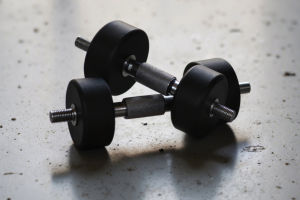Have you ever wondered how our food will keep up with the growing global population and climate changes? Well, Germany has brought together a dream team of scientists who are diving deep into plant research to help answer this question.
This isn’t just about farming—it’s about securing our future on this planet. And guess what? It all starts with the smallest things: plants and their genes.
CEPLAS: Germany’s Big Bet on Plants
Germany is home to CEPLAS, the Cluster of Excellence on Plant Sciences. It’s a huge research alliance backed by the German Research Foundation, and it includes four major institutions: the University of Cologne, Heinrich Heine University Düsseldorf, the Max Planck Institute for Plant Breeding Research, and Forschungszentrum Jülich. Together, these teams are working on plant innovations that could change how we feed the world.
Their goal? To improve crops so they grow better, faster, and more sustainably—even when resources like water and land are limited.
Why Plant Traits Matter More Than Ever
One of the most important things CEPLAS is doing is studying what makes plants strong and productive. These traits—like heat resistance or the ability to grow in poor soil—could make all the difference as we face extreme weather, economic shifts, and environmental stress.
They’re looking deep into plant genomes (yes, the plant's DNA) to figure out how certain genes help crops survive and thrive. Understanding this helps us breed plants that use fewer resources but give us more food.
How Genes Shape Plants and Protect Our Food
Plants are living factories. Their genes control how they grow, how they defend themselves from disease, and how they convert sunlight into energy. CEPLAS researchers are especially interested in how plants interact with beneficial microbes in the soil. These microbes help plants grow stronger and fend off threats naturally.
By mastering these natural systems, we can grow food in smarter, more eco-friendly ways—no need for harmful chemicals or wasteful practices.
Four Powerful Areas of Focus
CEPLAS isn’t a one-track project. It’s divided into four main areas:
1. Improving plant performance
2. Understanding plant-microbe relationships and soil adaptation
3. Using synthetic biology to build better biological systems
4. Creating data-driven models to predict plant behavior
Together, these areas cover everything from field experiments to computer simulations—ensuring nothing is left to guesswork.
Training the Next Generation of Plant Experts
Another exciting part? CEPLAS is also building the future generation of plant scientists. They offer interdisciplinary courses that combine classic plant biology with new skills like bioinformatics and data science. Bachelor’s programs in quantitative biology and PhD-level research projects are also part of their mission to grow talent, not just crops.
This means young scientists are learning not just how to study plants, but how to solve real-world problems using cutting-edge science.
Why This Matters for All of Us
Since the beginning of human civilization, we've depended on plants. Now, as we face increasing food demands and shrinking natural resources, science must lead the way in developing sustainable solutions. CEPLAS is working to make sure we’re ready—not just for today, but for decades to come.
By studying how plants evolve, adapt, and interact with their environment, CEPLAS helps us grow food that can stand up to the challenges of tomorrow—with less waste, more nutrition, and a smaller impact on our planet.
United for Innovation and Sustainability
CEPLAS is a collaboration of nearly 150 scientists from different backgrounds, all bringing their strengths to the table. From geneticists to bioinformaticians, every team member plays a role in creating a greener, more sustainable future.
This kind of teamwork is what makes the project special. When experts from different fields join forces, the results are often surprising—and powerful. CEPLAS proves that when we work together, we grow together.
Let's Grow Toward the Future Together, Lykkers
So, Lykkers, what does all this mean for us? It means hope. Hope that science can keep our plates full, our environment healthy, and our future secure. Germany’s commitment to plant research is a reminder that with the right knowledge and teamwork, we can overcome even the biggest challenges.
Let’s keep an eye on projects like CEPLAS—and maybe even get inspired to grow something new ourselves. After all, the future is something we all have a hand in planting.
Ready to explore more of the green revolution with us?


